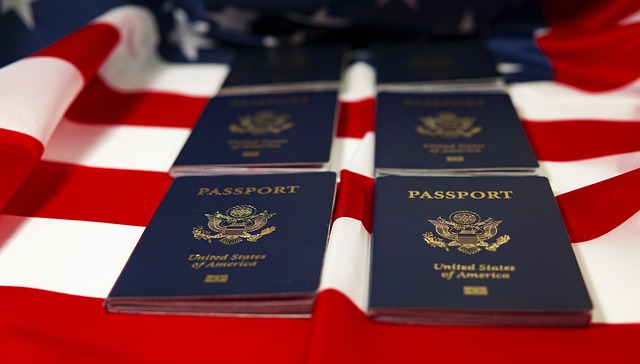Work Permits for Foreigners in the UK: A Comprehensive Guide

The United Kingdom has long been a popular destination for skilled professionals, entrepreneurs, and workers from around the world. However, working in the UK as a foreign national typically requires a valid work permit or visa. The UK’s immigration system has undergone significant changes in recent years, particularly after Brexit, making it essential for foreigners to understand the current rules and requirements. This article provides a detailed guide to work permits for foreigners in the UK, covering the types of visas available, eligibility criteria, application processes, and key considerations.
1. Overview of the UK Work Permit System
The UK does not issue traditional “work permits” as such. Instead, foreign nationals who wish to work in the UK must apply for a work visa under the Points-Based Immigration System. This system categorizes visas based on the purpose of travel, such as work, study, or family reunification. For work-related visas, applicants must meet specific criteria and score a minimum number of points to qualify.
2. Types of Work Visas in the UK
The UK offers several types of work visas, each tailored to different categories of workers. Below are the most common work visas for foreigners:
a. Skilled Worker Visa
The Skilled Worker Visa is the most common route for foreign nationals seeking employment in the UK. It replaced the Tier 2 (General) Work Visa in 2021.
- Eligibility Criteria:
- A job offer from a UK employer with a valid Sponsor License.
- The job must be at or above the required skill level (RQF Level 3 or equivalent).
- The salary must meet the minimum threshold (generally £26,200 per year or the “going rate” for the role, whichever is higher).
- Proficiency in English at a B1 level (intermediate).
- Points Requirement: Applicants must score at least 70 points based on factors such as job offer, salary, skill level, and English language proficiency.
b. Health and Care Worker Visa
This visa is designed for qualified healthcare professionals, such as doctors, nurses, and allied health workers, who have been offered a job in the UK’s National Health Service (NHS), an NHS supplier, or in adult social care.
- Eligibility Criteria:
- A job offer from an eligible UK healthcare employer.
- The role must be in an eligible occupation listed by the UK government.
- Proof of English language proficiency.
- A valid Certificate of Sponsorship (CoS) from the employer.
- Benefits: Lower application fees and exemption from the Immigration Health Surcharge (IHS).
c. Global Talent Visa
The Global Talent Visa is aimed at highly skilled individuals in specific fields, such as science, engineering, humanities, medicine, digital technology, and the arts.
- Eligibility Criteria:
- Applicants must be recognized as a leader or potential leader in their field.
- Endorsement from a recognized UK body, such as the Royal Society, Tech Nation, or Arts Council England.
- Benefits: No job offer is required, and applicants can work flexibly in the UK.
d. Start-Up and Innovator Visas
These visas are designed for entrepreneurs who want to establish a business in the UK.
- Start-Up Visa:
- For first-time entrepreneurs with an innovative business idea.
- Requires endorsement from an approved UK endorsing body.
- Valid for 2 years, with no option to extend (but can switch to an Innovator Visa).
- Innovator Visa:
- For experienced entrepreneurs with at least £50,000 in investment funds.
- Requires endorsement and a scalable, innovative business idea.
- Valid for 3 years, with the option to extend or apply for settlement.
e. Temporary Work Visas
The UK also offers several temporary work visas for specific purposes:
- Temporary Worker – Creative and Sporting Visa: For athletes, artists, and entertainers.
- Temporary Worker – Charity Worker Visa: For unpaid work at a registered charity.
- Temporary Worker – Religious Worker Visa: For religious workers.
- Temporary Worker – Seasonal Worker Visa: For seasonal work in agriculture.
- Temporary Worker – International Agreement Visa: For work covered under international law, such as embassy staff.
f. Graduate Visa
The Graduate Visa allows international students who have completed a degree at a UK university to stay and work in the UK for up to 2 years (or 3 years for PhD graduates).
- Eligibility Criteria:
- Completion of a degree at a UK higher education institution.
- The institution must have a track record of compliance with immigration rules.
- Benefits: No job offer or sponsorship is required, and graduates can work in any role.
3. Application Process for UK Work Visas
The application process for a UK work visa typically involves the following steps:
- Secure a Job Offer: Obtain a job offer from a UK employer with a valid Sponsor License.
- Receive a Certificate of Sponsorship (CoS): Your employer will provide you with a CoS, which contains details about your role and employment.
- Prepare Required Documents: Gather necessary documents, such as your passport, proof of English proficiency, and financial evidence.
- Complete the Online Application: Submit your application through the UK government’s official visa website.
- Pay the Fees: Pay the application fee, Immigration Health Surcharge (IHS), and any other applicable fees.
- Attend a Biometrics Appointment: Provide your fingerprints and photograph at a visa application center.
- Wait for a Decision: Processing times vary depending on the visa type and your location.
4. Key Considerations for Foreign Workers
a. Immigration Health Surcharge (IHS)
Most work visa applicants must pay the IHS, which grants access to the UK’s National Health Service (NHS). The current rate is £624 per year for most applicants.
b. Minimum Salary Requirements
The UK has strict salary thresholds for work visas. Ensure your job offer meets the minimum salary requirement for your role.
c. English Language Proficiency
Most work visas require proof of English language proficiency, typically through an approved test or a degree taught in English.
d. Dependents
Many work visas allow you to bring dependents (spouse/partner and children) to the UK. They will need to apply for dependent visas.
e. Settlement (Indefinite Leave to Remain)
After living and working in the UK for a specified period (usually 5 years), you may be eligible to apply for settlement, also known as Indefinite Leave to Remain (ILR).
5. Post-Brexit Changes
Since the UK left the European Union (EU), EU, EEA, and Swiss citizens are no longer free to work in the UK without a visa. They must now apply for a work visa under the Points-Based Immigration System, just like non-EU nationals.


